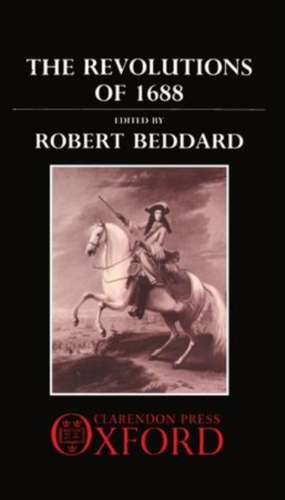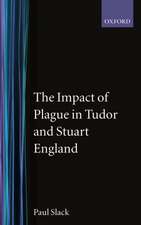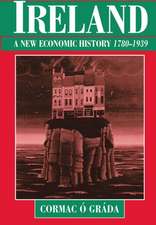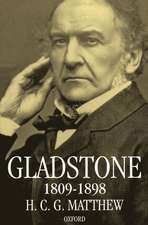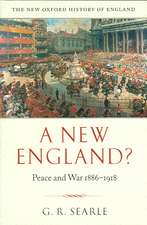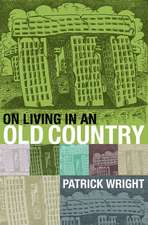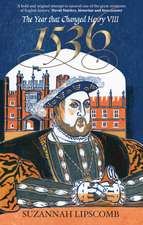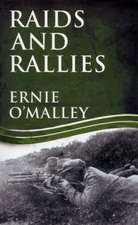The Revolutions of 1688: The Andrew Browning Lectures 1988
Editat de Robert Beddarden Limba Engleză Hardback – 16 mai 1991
Preț: 803.03 lei
Preț vechi: 1218.90 lei
-34% Nou
Puncte Express: 1205
Preț estimativ în valută:
153.66€ • 160.86$ • 127.14£
153.66€ • 160.86$ • 127.14£
Carte tipărită la comandă
Livrare economică 27 martie-02 aprilie
Preluare comenzi: 021 569.72.76
Specificații
ISBN-13: 9780198229209
ISBN-10: 0198229208
Pagini: 320
Dimensiuni: 146 x 220 x 23 mm
Greutate: 0.52 kg
Editura: Clarendon Press
Colecția Clarendon Press
Locul publicării:Oxford, United Kingdom
ISBN-10: 0198229208
Pagini: 320
Dimensiuni: 146 x 220 x 23 mm
Greutate: 0.52 kg
Editura: Clarendon Press
Colecția Clarendon Press
Locul publicării:Oxford, United Kingdom
Cuprins
Introduction: The Protestant succession; The unexpected Whig revolution of 1688; The political thought of the Anglican revolution; The Scottish nobility and the revolution of 1688-1690; Ireland and the glorious revolution: from kingdom to colony; Europe and the revolution of 1688; 'J'équippe une flotte très considerable': the Dutch side of the glorious revolution; The revolutions in America; The significance of 1688: some reflections on Whig history; Index
Recenzii
`an attractively-produced, beautifully-written and sparklingly-argued collection.'Times Higher Education Supplement
'John Wolffe has now made a valuable addition to the list by examining ultra-Protestant attitudes and actions during three crucial decades between 1829 and 1860 ... in this book he has not only consolidated his subject by displaying the relationships between different aspects of anti-Catholicism, but also expanded knowledge by giving detailed examination to the anti-Catholic societies and their leading figures. The book is thus a notable and distinguished addition to a substantial literature.'Ian Machin, Journal of Ecclesiastical History
'Beddard ... argues that William of Orange joined up with the Whigs to hijack the revolution, and grab the government out of hands of James II and the Tories, to whom he had turned in the closing months of his reign. The narrative skill with which he develops this case, and the range of sources with which he documents it, make it a very powerful thesis.'W.A. Speck, History, October 1992
`Beddard, in an essay running to nearly one third of this volume, offers an in-depth account of political manoceuvres in England in the weeks between Williams's landing in early November 1688 and the tender of the crown little more than three months later.' Clyve Jones, Parliamentary History Vol 11, Nov 92
'Beddard offers a convincing and scholarly account of events in the winter of 1688-89, one that is based on an impressive grasp of the archives ... excellent collection.'Jeremy Black, University of Durham, British Journal of Eighteenth Century Studies, Spring 1993
'John Wolffe has now made a valuable addition to the list by examining ultra-Protestant attitudes and actions during three crucial decades between 1829 and 1860 ... in this book he has not only consolidated his subject by displaying the relationships between different aspects of anti-Catholicism, but also expanded knowledge by giving detailed examination to the anti-Catholic societies and their leading figures. The book is thus a notable and distinguished addition to a substantial literature.'Ian Machin, Journal of Ecclesiastical History
'Beddard ... argues that William of Orange joined up with the Whigs to hijack the revolution, and grab the government out of hands of James II and the Tories, to whom he had turned in the closing months of his reign. The narrative skill with which he develops this case, and the range of sources with which he documents it, make it a very powerful thesis.'W.A. Speck, History, October 1992
`Beddard, in an essay running to nearly one third of this volume, offers an in-depth account of political manoceuvres in England in the weeks between Williams's landing in early November 1688 and the tender of the crown little more than three months later.' Clyve Jones, Parliamentary History Vol 11, Nov 92
'Beddard offers a convincing and scholarly account of events in the winter of 1688-89, one that is based on an impressive grasp of the archives ... excellent collection.'Jeremy Black, University of Durham, British Journal of Eighteenth Century Studies, Spring 1993
